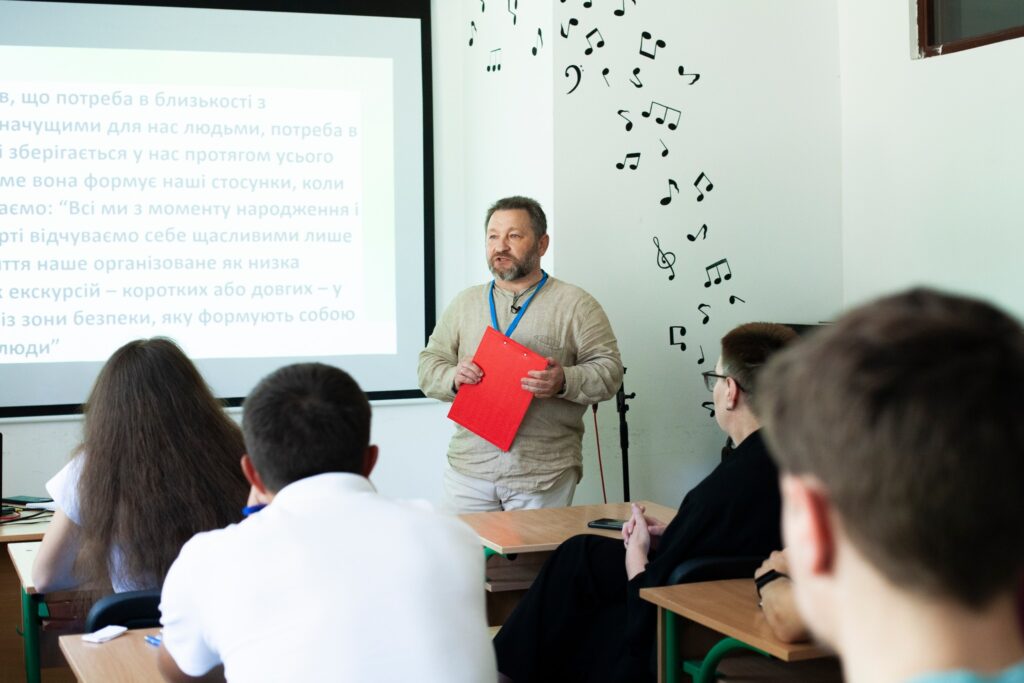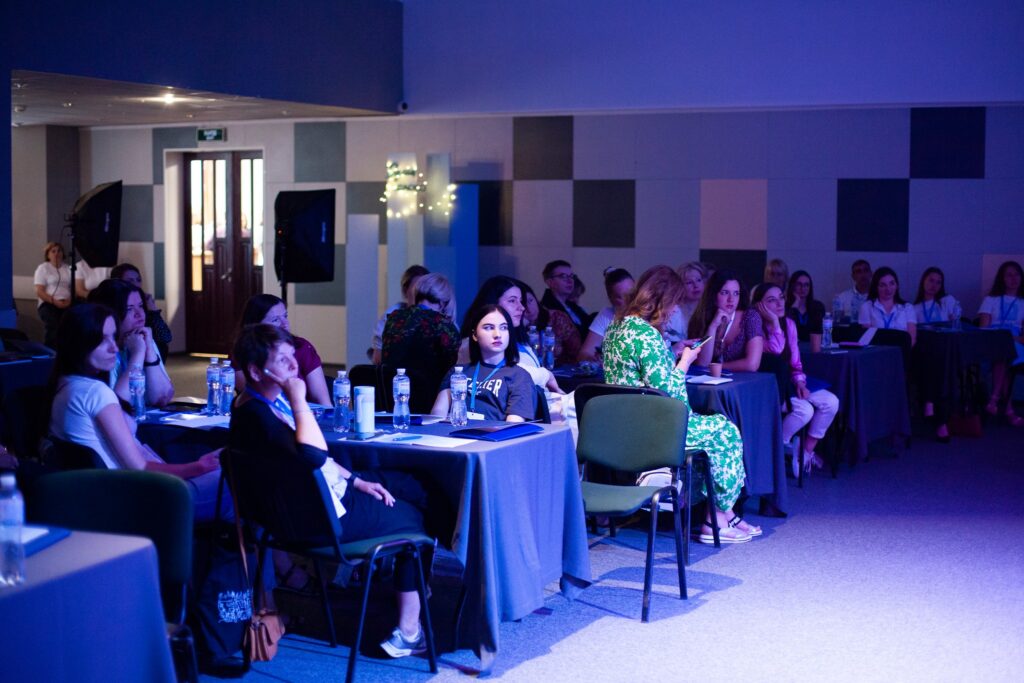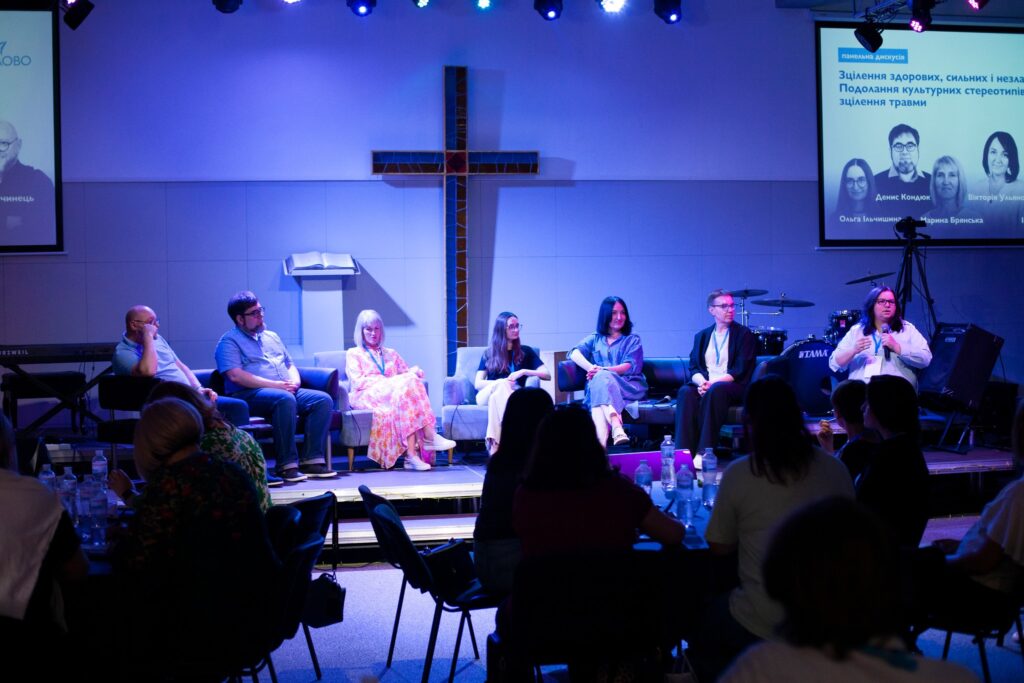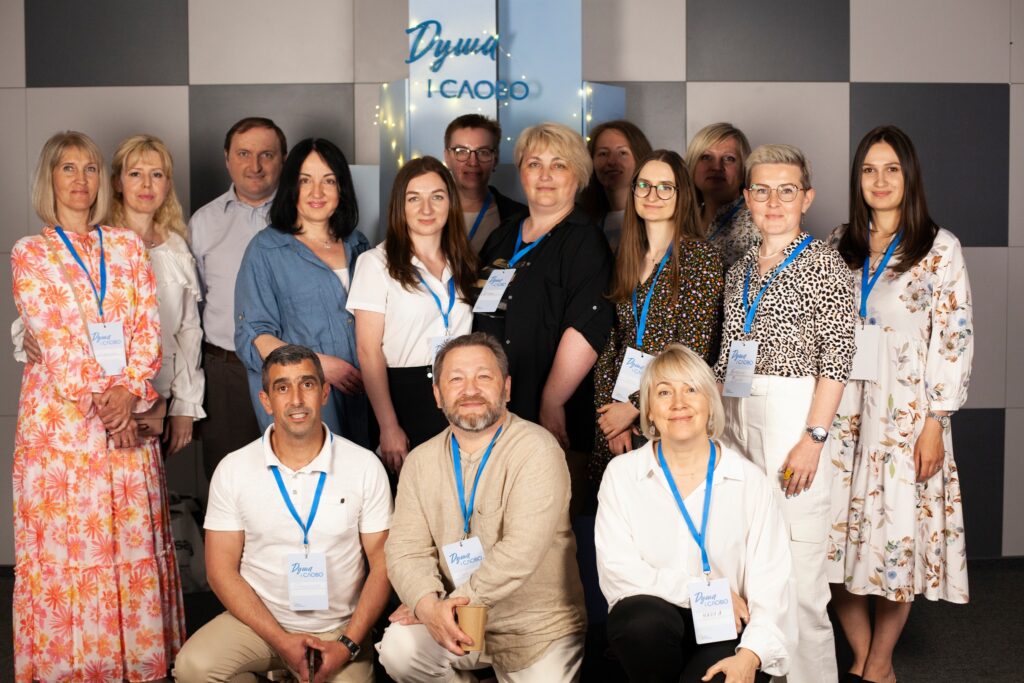
On June 10th, a psychology conference, “Soul and Word,” was held on the UETS campus. The conference was organized by the UETS Psychology Department. Among conference participants were UETS students of psychology and other departments, Christian counselors and psychologists, pastors and ministers from different churches, as well as UETS faculty members.
The conference became a platform where those who are involved in pastoral, counseling, and trauma healing ministry could discuss important issues of serving people in current wartime and share their own experiences, as well as participate in a series of psychology seminars conducted by UETS psychology students, where they shared knowledge, skills, and experience in topics relating to their specialization.

During the first panel discussion, we raised questions of how churches can help people overcome trauma; how communication between pastors, psychologists, and trauma therapists has changed since the war started and how to foster their further cooperation; why it is so important for ministers to have psychology knowledge and skills, and how this knowledge and skills can prevent ministers from causing even more harm to people who are already traumatized.

The second panel discussion was dedicated to questions of forming a culture of vulnerability in churches and in society, in which admitting that you need psychological support is perceived in a positive way. We talked about general stereotypes in churches relating to psychology, why people are resistant to ask for psychological help, why caring for one’s psychological needs is as important as caring for physical or spiritual needs, as well as the importance of caring for the psychological needs of church and ministry leaders and all those who have to stay strong and care for others in times of crisis.
Maryna Brianska, 3rd-year psychology student, said: “The problem is that we are being taught to be strong, and this has led to people learning to go around wearing masks and hiding what’s really inside…But you can’t solve the problem this way. That’s why we have to form this new culture in which it is OK to be vulnerable and to talk about your weaknesses”.

Of course, we couldn’t go around questions of serving to psychological needs of the military and their families. One of the speakers, Olha Ilchyshyna, UETS 3-rd year psychology student, who used to serve at the frontline when the war started in 2014, said, relating to this topic: “I know what military’s attitude to psychologists very well. This attitude says, “I don’t need any help.” Very few of those soldiers that I knew personally were ready to ask for psychological help. And the funniest thing is that after returning from the frontline, I myself refused to go to a psychologist for about a year and a half, though at the frontline, I have been trying to convince everyone that it is important and prepare them that they will have to do it. But eventually, I myself faced all the inner resistance that all military go through when asking for psychological support”.
Fedir Raychynets, Head of the UETS Department of Theology, Director of the Transformative Leadership Master’s Program, stressed that today the military trust churches more than they trust psychologists. That’s why it is so important for churches to involve more professional psychologists in their ministry and to build these connections between churches and psychologists.”
We thank God for this great opportunity to come together as a community so as to grow together, united by a mutual goal of fulfilling God’s integral mission.

